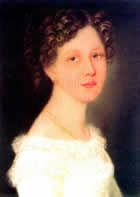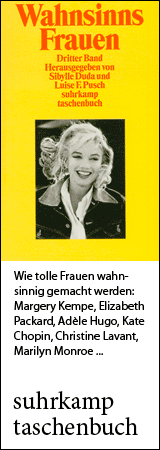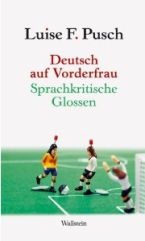Biographies Ulrike von Levetzow

born on February 4, 1804, in Leipzig, the Holy Roman Empire
died on November 13, 1899, in Trziblitz, the German Empire (today: Třebívlice, the Czech Republic)
German noblewoman; Goethe's last love
Biography
It was a welcome change from the strict boarding school life in Strasbourg: seventeen-year-old Ulrike von Levetzow spent the summer holidays of 1821 with her mother and two sisters at her grandparents' home in Marienbad, where she encountered the 72-year-old Goethe, who had been a close friend of her mother's for many years. As Ulrike had not met him before, her manner upon meeting him was completely uninhibited and unafraid. She was a cheerful but not frivolous girl and was able to communicate openly and confidently. The profound effect her affable nature had on Goethe, whose erudition she found both inspiring and overwhelming, may have only fully dawned on her at the end of her life at the unusually advanced age of 95.
In any case, she initially took the marriage proposal that Goethe had the Grand Duke Carl August of Weimar make to her in the summer of 1823 as a joke, even though Carl August padded it with the offer of a generous widow's pension of 10,000 talers a year. Amalie von Levetzow advised her daughter in this unusual and delicate situation wisely and without patronizing her, recommending that Ulrike give the offer her careful consideration. However, Ulrike had “no desire to marry” and felt she did not need time to think about it. She loved Goethe like a father, but his son August and his wife Ottilie looked after him well – he did not need her.
As unabashed as she was in her dealings with Goethe, she was equally unabashed in rejecting his proposal, and she remained unmarried. She spent most of her life at Trziblitz Castle in Bohemia, where she was a benevolent mistress to her servants and the villagers. She enjoyed hunting and collecting pictures and prints. She donated a spinning school to the village community, where she also taught herself, assisted by her sister Bertha, with whose family she maintained close contact.
Throughout her life she vehemently denied that her relationship with Goethe was an “amour.” Even in her old age, she wrote a kind of counterstatement in an autobiographical sketch to refute “all the false, often entirely fabricated stories that have been printed about it” and to make it clear that “it was not a love affair.”
For Goethe, however, it was much more. It is to his feelings for Ulrike that posterity owes the poem “Marienbad Elegy,” a harrowing testimony to his grief over losing her.
(Text from 2004; translated with DeepL.com; edited by Ramona Fararo, 2025. Please consult the German version for additional information, pictures, sources, videos, and bibliography.)
Author: Mechthild Winkler-Jordan
If you hold the rights to one or more of the images on this page and object to its/their appearance here, please contact Fembio.



